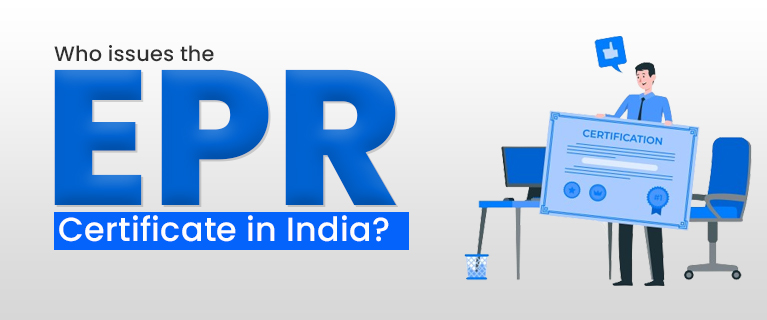A Comprehensive Guide to Company Formation in Singapore
Singapore, often hailed as a global business hub, offers an ideal environment for entrepreneurs and companies looking to establish a strong foothold in Asia and beyond. With its strategic location, business-friendly policies, and robust infrastructure, Singapore has consistently ranked high on the list of preferred destinations for company registration. In this comprehensive guide, we will walk you through the process of Company Formation in Singapore, covering all the essential steps, types of business structures, necessary documents, and more.
Why Choose Singapore for Company Registration?
Before delving into the process of Company Formation in Singapore, let's explore why Singapore is a prime choice for entrepreneurs seeking to start or expand their businesses:
1. Strategic Location: Singapore's strategic location in the heart of Southeast Asia provides unparalleled access to global markets. Its well-developed transportation and communication networks facilitate easy connectivity to both regional and international destinations.
Read Also This – Why is Patent Registration important2. Political and Economic Stability: The country's stable political climate, efficient government, and strong rule of law create a safe and secure environment for businesses to operate in.
3. Ease of Doing Business: Singapore consistently ranks high in global ease of doing business indices, thanks to its streamlined regulatory processes, low bureaucracy, and pro-business policies.
4. Tax Advantages: Singapore offers a competitive corporate tax rate and a robust network of double taxation avoidance agreements, making it an attractive location for tax-efficient business operations.
5. Access to Talent: The city-state boasts a skilled and multicultural workforce, making it easier for businesses to find and retain the right talent.
6. Strong Intellectual Property Protection: Singapore provides robust intellectual property protection, safeguarding innovations and creations, and encouraging research and development.
7. Global Reputation: Singapore's reputation as a financial and technological hub enhances the credibility and visibility of businesses registered within its borders.
Now that we've highlighted the advantages of company formation in Singapore, let's delve into the step-by-step process of setting up a business in this thriving nation.
Step-by-Step Process of Singapore Company Registration:
1. Choose a Business Structure: Singapore offers several business structures, including Private Limited Company (Pte Ltd), Sole Proprietorship, Partnership, and Limited Liability Partnership (LLP). The Private Limited Company is the most popular choice due to its separate legal entity status and liability protection.
2. Reserve the Company Name: Before you begin the process of company formation in Singapore, you need to choose a unique name for your company and check its availability using the BizFile+ portal. The name should comply with the naming regulations set by the Accounting and Corporate Regulatory Authority (ACRA).
3. Appoint Directors and Shareholders: A Singapore company must have at least one director who is a Singapore resident. You can also appoint additional local or foreign directors. Shareholders can be individuals or corporate entities, and 100% foreign ownership is allowed.
4. Registered Address: You need to provide a local registered address for your company. This address will be used for official correspondence and should be a physical address, not a P.O. Box.
5. Prepare the Company Constitution: The company's constitution outlines the rules governing its internal affairs. It can be based on the model constitution provided by ACRA or a custom-made document.
6. File Incorporation Documents: To register your company, you need to submit the required documents to ACRA through the BizFile+ portal. These documents include the company constitution, details of directors and shareholders, and other relevant information.
7. Pay the Registration Fee: Along with the submission of documents, you need to pay the registration fee to ACRA. The cost varies according to the kind of business structure you select.
8. Obtain Necessary Licenses and Permits: Depending on your business activities, you may need to obtain specific licenses and permits from relevant government authorities.
9. Open a Corporate Bank Account: Once your company is registered, you can open a corporate bank account in Singapore to manage your business finances.
10. Register for Taxes: You need to register your company for Goods and Services Tax (GST) if your annual turnover exceeds a certain threshold. Additionally, you need to register for other applicable taxes, such as Corporate Income Tax.
11. Employment Pass for Foreign Employees: If you plan to hire foreign employees, you need to apply for an Employment Pass (EP) or other relevant work passes through the Ministry of Manpower (MOM).
Read Also This – How To Setup Business In Dubai (UAE) From IndiaTypes of Business Structures in Singapore:
1. Private Limited Company (Pte Ltd): The most common business structure, offering limited liability, separate legal entity status, and the ability to raise capital through shares. In this case, it is obligatory to have at least a shareholder and a director.
2. Sole Proprietorship: A business owned by a single individual, with the owner responsible for all profits, losses, and liabilities.
3. Partnership: A business structure involving two or more partners who share profits, losses, and responsibilities. Partnership comprises both General Partnerships and Limited Partnerships.
4. Limited Liability Partnership (LLP): This hybrid organization combines aspects of a corporation and a partnership to offer partners limited accountability.
Documents Required for Singapore Company Registration:
1. For All Directors and Shareholders:
- Copy of Passport
- Proof of Residential Address
-Consent to Serve as Director (Form 45)
- Declaration of Compliance (Form 46)
- Any other relevant documents
2. For Local Directors:
- Singapore Identity Card (IC)
3. For Foreign Directors and Shareholders:
- If individual: Passport, Proof of Residential Address, and Bank Reference Letter
- If corporate entity: Certificate of Incorporation, Corporate Profile, and List of Directors
4. For Registered Address:
- Lease Agreement or Utility Bill of the Registered Address
5. For Company Secretary:
- Consent to Act as Company Secretary (Form 45)
Dos and Don'ts of Singapore Company Registration:
Dos:
1. Select a Distinctive and Relevant Company Name: Opt for a company name that not only sets your business apart but also reflects its nature and objectives. A well-chosen name can leave a lasting impression on customers and stakeholders.
2. Appoint an Experienced Company Secretary: Ensure that your chosen company secretary possesses the necessary expertise to handle administrative and compliance tasks effectively. A knowledgeable secretary can streamline operations and keep your company on the right track.
3. Adhere to Legal and Regulatory Obligations: Stay vigilant about complying with all legal and regulatory requirements applicable to your business. From obtaining licenses to adhering to tax filings, compliance is essential for maintaining a lawful and ethical business operation.
4. Maintain Accurate Financial Records: Keep comprehensive and accurate financial records that adhere to established accounting standards. Proper financial management not only ensures compliance but also provides insights for informed decision-making.
5. Seek Professional Advice: If you encounter uncertainties or complexities during the company registration process, do not hesitate to seek guidance from legal, financial, or business experts. Their insights can help you make informed choices and navigate potential pitfalls.
Don'ts:
1. Avoid Offensive or Infringing Names: Steer clear of company names that could be perceived as offensive, obscene, or infringing upon existing trademarks. A respectful and original name sets the tone for a professional business image.
2. Don't Neglect Director and Shareholder Responsibilities: As a director or shareholder, it's crucial not to overlook your responsibilities and duties. Uphold your fiduciary obligations to the company, stakeholders, and the law.
3. Steer Clear of Illegal or Unethical Practices: Operate your business with integrity and in compliance with legal standards. Engaging in illegal or unethical practices can lead to reputational damage and legal repercussions.
4. Don't Overlook Tax and Financial Reporting: Neglecting tax payments and financial reporting can result in financial penalties and disruptions to your business. Stay proactive in meeting your tax and reporting obligations.
5. Prioritize Intellectual Property Protection: Don't underestimate the importance of safeguarding your intellectual property, including trademarks, copyrights, and patents. Neglecting intellectual property protection could lead to potential disputes and loss of valuable assets.
Incorporating these dos and avoiding these don'ts during the company formation in Singapore ensures that you establish a solid foundation for your business's growth, success, and compliance with legal and ethical standards.
Read Also This – The Do’s and Don’ts for Mastering the PSARA LicenseConclusion:
Company Formation in Singapore is a well-defined and streamlined process that offers numerous benefits and opportunities for entrepreneurs and businesses. From the ease of doing business to the favourable tax environment and access to a skilled workforce, Singapore provides a conducive ecosystem for growth and success. By carefully following the step-by-step process, adhering to legal requirements, and seeking professional guidance when needed, you can establish your business in Singapore and embark on a journey of prosperity and innovation. Whether you're a local entrepreneur or a foreign investor, Singapore's business-friendly landscape makes it an ideal destination to transform your business dreams into reality.










